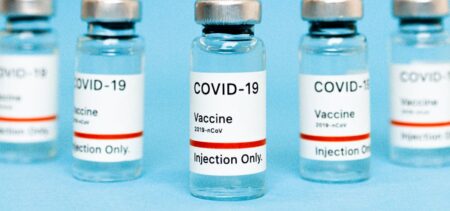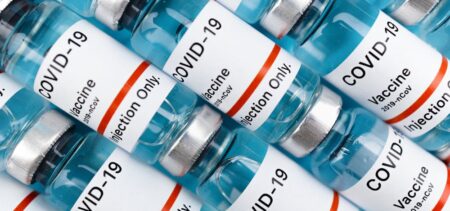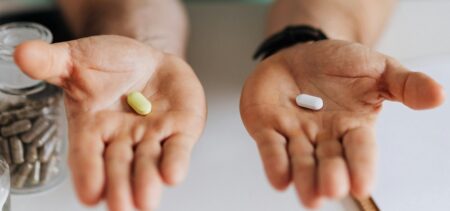The Delta variant of the coronavirus has become the dominant strain around the world, bringing with it an increase in deaths in the US and many other countries. While the victims are almost exclusively unvaccinated, the new surge seems to indicate that the COVID-19 pandemic is far from over. The Director of the Centers for Disease Control and Prevention, Dr. Rochelle Walensky, said this new phase of the situation is “a pandemic of the unvaccinated,” as scientists, pharmaceutical and biopharmaceutical companies around the world struggle to develop a cure. Just four countries are actually approaching the 70% mark when it comes to vaccination, and that means the need for new drugs remains high in the US and abroad.
Encouraging people to get vaccinated and providing them with the necessary shots remain of the utmost importance, as vaccines are now the world’s best bet against the coronavirus, especially considering the new and highly transmissible Delta variant. This doesn’t mean, however, that the search for a COVID-19 cure should come second. Vaccination might have been the greatest weapon in the fight so far, but it might prove to be just one part of the plan needed to win it.
Repurposing Approved Treatments
Cracking and sharing the SARS-CoV-2 genetic sequence was an essential step in vaccine development, and it might also prove essential when it comes to discovering new treatments. However, genetic sequencing is not the only technique used when searching for new cures. In fact, artificial intelligence (AI), a process that allows computers to perform tasks normally requiring human intelligence, is also proving to be extremely useful. Cambridge University scientists made good use of both as they went on to discover no less than 200 drugs that have the potential to treat COVID-19.
Their study, now published in Science Advances, used a combination of computational biology and AI to identify 200 already approved drugs that can be repurposed against COVID-19. Although 40 of the treatments in question are already in COVID-19 clinical trials, it’s important to note that the study not only provides evidence for the rapid repurposing of other 160 drugs, but also shows that two particular treatments might be used to inhibit viral replication. According to the scientists, the study proved the promising anti–SARS-CoV-2 effects of both proguanil, a medication used to treat and prevent malaria, and sulfasalazine, a disease-modifying anti-rheumatic drug.
The Search for New Treatments
While some scientists and companies are betting on previously approved treatments that might have the potential of also treating COVID-19, others are already developing new drugs. According to a study conducted in the United Arab Emirates (UAE), Sotrovimab prevents high-risk patients from dying or ending up in the intensive care units. UAE was among the first countries to receive a shipment of the new medicine just a month before, and it soon announced on Twitter its effectiveness in treating mild to moderate cases among high risk-patients. According to information published on the official account of the Abu Dhabi government, 97% of those who were treated with Sotrovimab made a recovery.
The Food and Drug Administration (FDA) has already granted an emergency use authorization (EUA) for Sotrovimab, a drug developed by GlaxoSmithKline (GSK) and Vir Biotech. According to the information provided by the two companies, it can be used to treat mild-to-moderate COVID-19 in both adults and children above the age of 12, who are at high risk of progressing to severe COVID-19. However, the medicine should not be used to treat patients with COVID-19 who are already hospitalized or those who already require oxygen therapy due to COVID-19 or other previously existent conditions.
More Good News
While the US is among the first countries in the world to approve the Sotrovimab treatment, Japan is actually the first to approve Ronapreve, a treatment for mild to moderate COVID-19 developed by Swiss pharmaceutical giant Roche Holding AG. The decision came as a result of phase 3 trials that proved the new drug’s power to reduce the possibility that a mild or moderate case of COVID-19 developed into a more serious disorder. According to Roche’s chief medical officer Levi Garraway, the new medicine “has been shown to improve survival in high-risk, non-hospitalized Covid-19 patients by reducing the risk of hospitalization and death.”
The development of new drug treatments and the possibility of repurposing some of the ones already in use gives all of us hope, even as the World Health Organization experts continue to warn about the possible emergence and spread of more dangerous strains. For now, the pandemic belongs to “the unvaccinated,” but only time can tell for how long the existing protection will last. With the Delta variant now responsible for an estimated 83% of all sequenced Covid-19 cases in the US, one thing remains certain: we need the vaccines, but we also need new treatments.




































